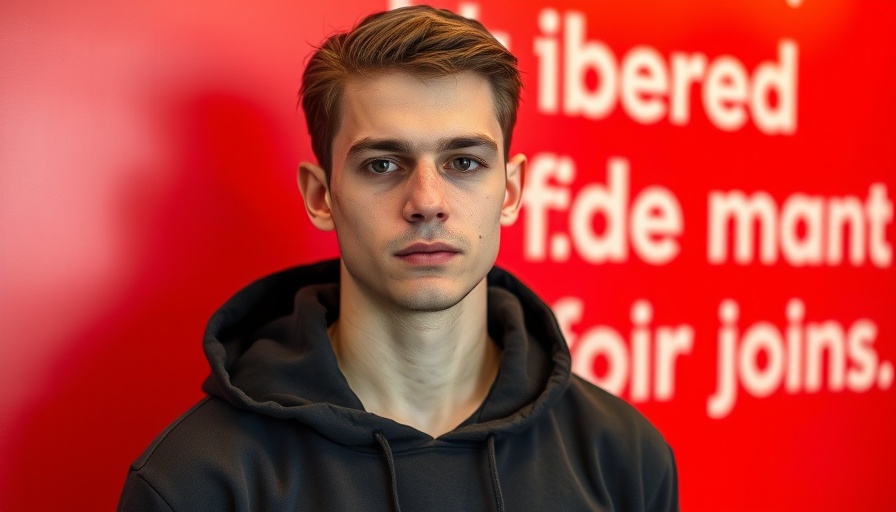
The Controversial Flag: A Dispute at O2 Forum
The music scene in London took a contentious turn when Liam O’Hanna, a member of the Northern Irish rap group Kneecap, was charged with a terrorism offense related to the display of a Hezbollah flag during a performance. This incident occurred on November 21 last year at the O2 Forum in Kentish Town. Given the sensitivity surrounding terrorism and public sentiment regarding protests in music, this incident raises significant questions about artistic expression versus national security concerns.
Understanding the Charges: The Weight of Symbolism
Hezbollah, noted for its controversial status as a terrorist organization in the UK, has sparked heated debates. O’Hanna's actions, as highlighted through the Metropolitan Police's statement, fall under scrutiny as they reflect a broader discourse on how symbols operate within musical contexts. The flag's display has been cited in allegations that leaders of the band called for violence against UK politicians, leading to a significant investigation by the Counter Terrorism Command.
Public Backlash and Cancellations: The Voice of Community Sentiment
In light of the charges, Kneecap faced public backlash, resulting in several gig cancellations. Politicians like Conservative leader Kemi Badenoch are rallying for the group to be removed from esteemed festival lineups, including the renowned Glastonbury Festival. This push underscores how community leaders are reacting to cultural expressions that may be perceived as inflammatory. The rapid escalation in public opinion demonstrates the pressing impact of social media and traditional news coverage in shaping perceptions of artists.
The Group's Response: Contextualizing Their Narrative
Kneecap has taken a defensive stance, releasing statements that aim to contextualize the footage and deny any intent to endorse violence. They express that their performances—including provocative lyrics—are often misunderstood and exploited to frame them negatively. This contrast between artistic intentions and public interpretations speaks volumes about the delicate balance artists must navigate in modern discourse.
Implications for the Music Industry: Safety and Freedom
The incident involving Kneecap reflects an ongoing conversation within the music industry regarding the safety of artists and venues while maintaining freedom of speech. Should artists be held accountable for the symbols they display? Events like these lead us to consider the evolving relationship between creatives and law enforcement, testing the boundaries of expression in a more politically charged climate.
The Road Ahead: Predicting Future Trends in Live Music
As Kneecap prepares to face judicial scrutiny on June 18 at Westminster Magistrates’ Court, many wonder how the outcome will impact the group's future and the broader music community in London. Expect potential industry shifts and discussions on the necessity for clearer guidelines regarding performances that intersect with sensitive geopolitical subjects.
Community Action: Engaging in Dialogue
This incident presents an opportunity for community members, especially young homeowners looking to engage with their cultural landscape, to reflect on the implications of artistic expression. Voices from local neighborhoods can shape the conversation around cultural symbols in music. By attending local events and engaging in dialogue, residents can better understand the complexities artists face while crafting their narratives.
 Add Row
Add Row  Add
Add 






Write A Comment